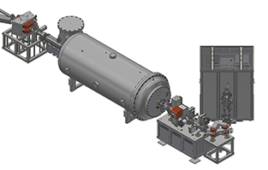
Mitsubishi Hitachi Power Systems (MHPS) and Carnegie Mellon University (CMU) today announced the release of the 2018 Carnegie Mellon Power Sector Carbon Index, at CMU Energy Week, hosted by the Wilton E. Scott Institute for Energy Innovation. The Index tracks the environmental performance of U.S. power producers and compares current emissions to more than two decades of historical data collected nationwide. This release marks the one-year anniversary of the Index, developed as a new metric to track power sector carbon emissions performance trends.
“The Carnegie Mellon Power Sector Carbon Index provides a snapshot of critical data regarding energy production and environmental performance,” said Costa Samaras, Assistant Professor of Civil and Environmental Engineering CMU. “We’ve found this index to provide significant insight into trends in power generation and emissions. In particular, the data have shown that emissions intensity has fallen to the lowest level on record, as a combination of natural gas and renewable power have displaced more carbon intensive coal-fired power generation.”
The latest data revealed the following findings: U.S. power plant emissions averaged 967 lb. CO2 per megawatt-hour (MWh) in 2017, which was down 3.1 percent from the prior year and down 26.8 percent from the annual value of 1,321 lb CO2 per MWh in 2005. The result for 2016 was initially reported as 1,001 lb/MWh, but was later revised downward to 998 lb/MWh. For the complete findings of the Index, please visit emissionsindex.org.
“The power industry has made significant progress in reducing emissions for over a decade, as new technology, state and federal policies and market forces have increased power generation from natural gas and renewables, and decreased power generation from coal. As this Change in Power continues, the Carnegie Mellon Power Sector Carbon Index will not only report the results but also provide analysis of the underlying reasons for the changes we’re seeing,” said Paul Browning, President and CEO of MHPS Americas. “Our team at MHPS is proud to support this important work by Carnegie Mellon researchers.”
This year, CMU announced enhancements to the Index. New regional information from within the US will be reported, allowing for greater insight into the impact of regional trends on fuel types, usage, and emissions. In addition, the index will begin to incorporate emissions data from other countries across North and South America. As the Index continues to expand, it will serve as a source of objective insight regarding emissions trends across the Americas for policy makers, regulators, utilities, industry analysts and the public.
“We are excited to regionalize and internationalize our work on the Power Sector Carbon Index,” said Ines Azevedo, Professor of Engineering and Public Policy, and co-Director of the Climate and Energy Decision Making Center, “and to help educate and support the decision making process regarding emissions reductions.”




